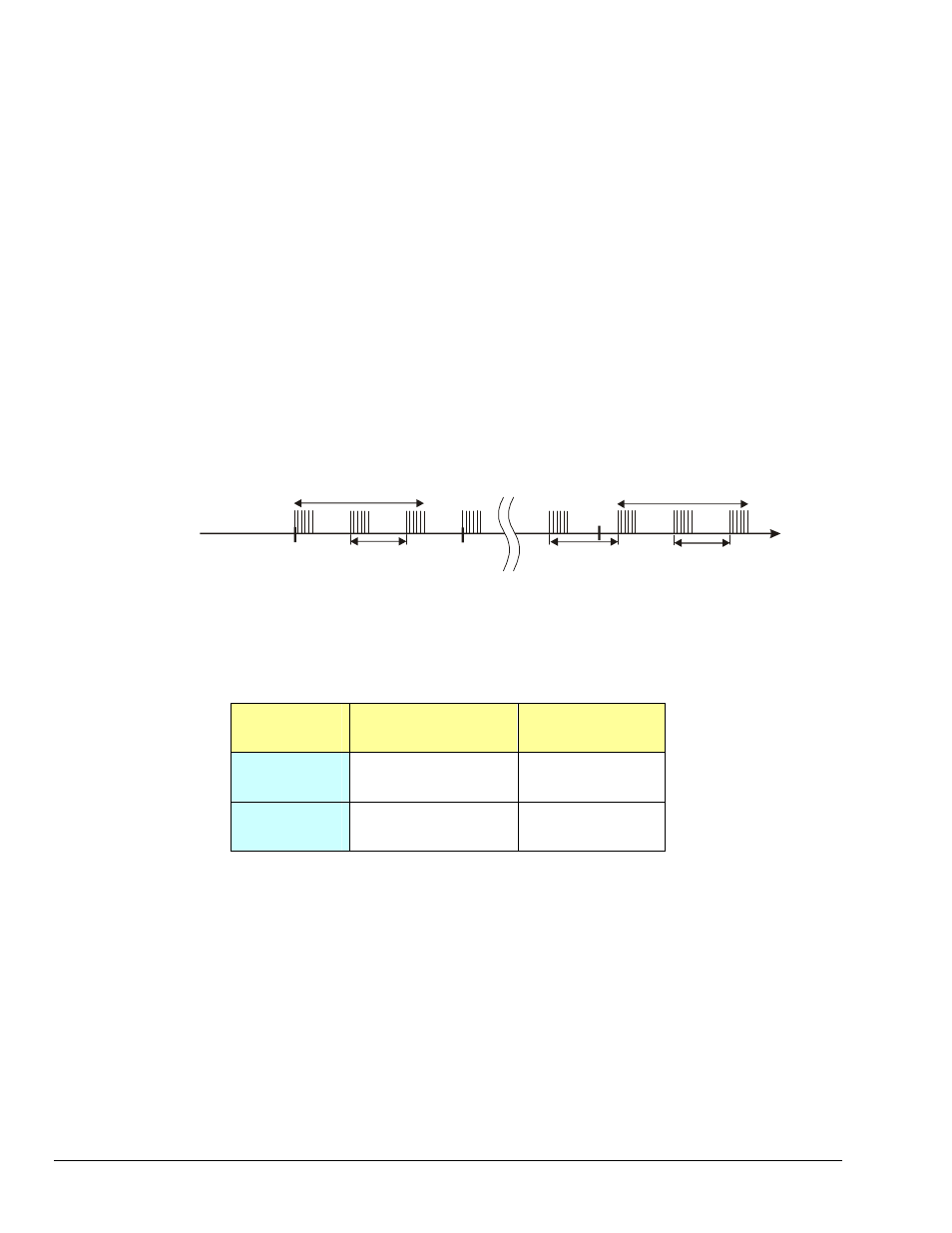Trigger latency & jitter – Measurement Computing ZonicBook 618E rev.3.4 User Manual
Page 60

Trigger Latency & Jitter
Trigger latency and jitter depend on the trigger source and the acquisition mode:
• Trigger latency is the duration between the valid trigger and the start of the acquisition.
• Trigger jitter is the variation of the latency, how much time the latency can vary from trigger to
trigger.
As discussed, ZonicBook/618E has post-trigger and pre/post-trigger acquisition modes. Post-trigger
modes
collect scans only after the trigger has occurred. They are different from the pre/post-trigger mode that
collects scans both before and after the trigger. This difference affects the trigger latency and jitter.
In a post-trigger mode, ZonicBook/618E is not scanning while waiting for the trigger. Thus, it is free to
respond to the trigger as soon as it occurs. This minimizes the trigger latency and jitter.
In the pre/post-trigger mode, pre-trigger data is being collected while ZonicBook/618E waits for the
trigger, and ZonicBook/618E will not respond to a trigger, until after the current scan is complete. The
pre-trigger scan period separates the first scan after the trigger from the last scan before the trigger. All the
scans (up through the one immediately following the trigger) are collected at the pre-trigger rate; and all
subsequent scans are collected at the post-trigger rate. This preserves the integrity of the acquisition
timebase as shown in the following figure.
Start
No acquisitions
before start
Pre-Trigger
Scan Period
Pre-Trigger Scan Count
Pre/Post-Trigger Acquisition
Time
Trigger
Armed
Trigger
Pre-Trigger
Scan Period
Post-Trigger
Scan Period
Post-Trigger Scan Count
The time needed to complete the final pre-trigger scan is part of the trigger latency; and so, in the pre/post-
trigger mode, the trigger latency may be greatly increased.
6-12 Analog Signals
878595
ZonicBook/618E
Max. Trigger Latency
Trigger Jitter
Pre-Trigger
300 ns + T
50 ns + T
Post-Trigger
300 ns
50 ns
T equals the pre-trigger scan period (see previous figure).
